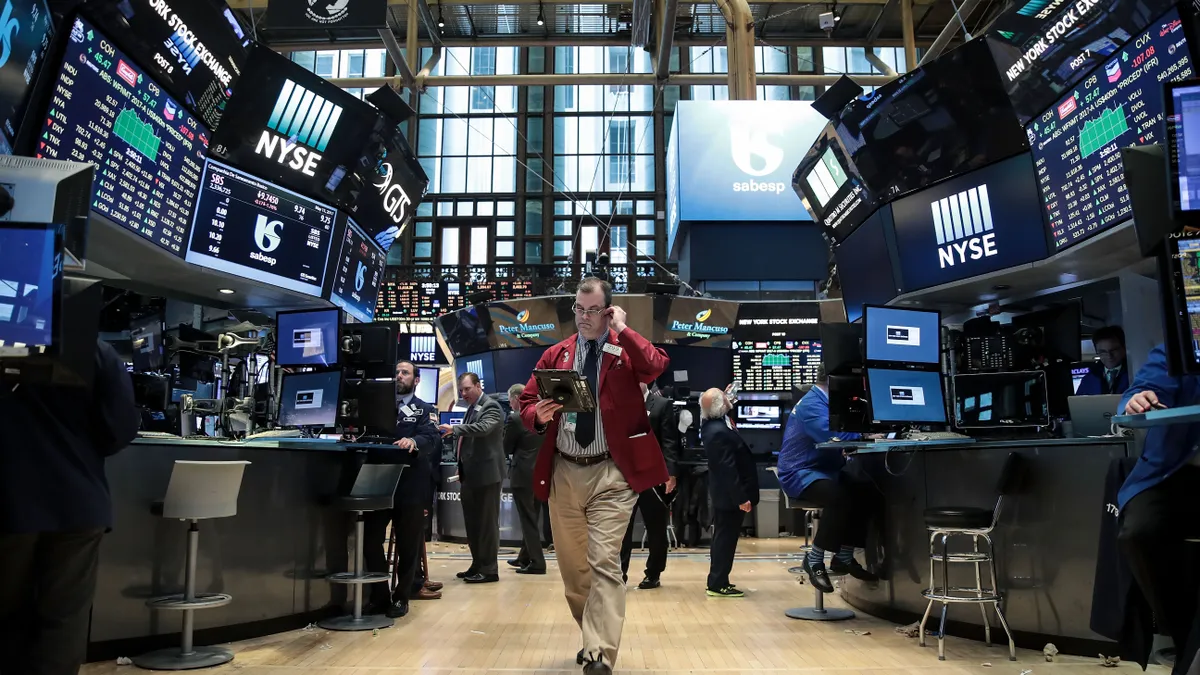Dive Brief:
- The "significant U.S. investment" in at-home dialysis technologies that Baxter teased following President Trump's executive order to revamp kidney care this month will equate to roughly $500 million toward new and existing manufacturing facilities.
- CEO José Almeida told investors during its second quarter earnings call Thursday that while the executive order will be "transformational" for its renal care business, even without the policy Baxter has seen high single-digit growth in the amount of patients using its peritoneal dialysis technologies. More than three-quarters of renal care revenues were generated in geographies outside the U.S. during the period ended June 30.
- The second quarter also represented the first period of year-over-year growth in the medication delivery business since early 2018, with the unit up 1% on a reported basis with revenues of $689 million. Turnaround in the medication delivery business was largely driven by uptake of new infusion pump offerings and the results marked "a return to solid and balanced growth in both the U.S. and internationally," CFO James Saccaro said.
Dive Insight:
Second quarter revenue of roughly $2.8 billion was comparable year over year on a reported basis, edging out analysts' expectations by about $40 million.
President Trump's recent executive order designed to transition dialysis patients to at-home care provides a clear growth opportunity for Baxter's PD products.
"Depending on the Initiative's final form, Baxter plans to scale investments in the U.S. to align with the proposed models from the Centers for Medicare and Medicaid Services (CMS), and patient and market dynamics across the adoption curve," Baxter wrote in its second quarter earnings release Thursday, telling investors on a call that the company expects to be able to provide more detail once HHS finalizes the rule by year's end.
Baxter will face competitors like DaVita Dialysis, Fresenius Medical Care and even CVS in efforts to capitalize on the market shift.
One disruption during the quarter was a voluntary Class 2 recall of more than 65,000 units of certain models of its Revaclear dialyzers due to potential ruptured fibers which could allow for blood to leak during treatment. Saccaro said the event is expected to have a $20 million negative effect on full year revenues and supply of the devices should be back to full inventory levels by the end of 2019.
Revenues were also impacted by Baxter's exit from the in-center hemodialysis bloodline business, which it expects to negatively impact overall 2019 revenues by $55 million.
On the flip side, Baxter may have benefited from competitors' supply chain disruptions in other businesses. The advanced surgery unit grew 14% as reported during the quarter, in part thanks to increased demand for hemostats amid Johnson & Johnson's stop shipment of Surgiflo in the U.S. That issue, related to an FDA manufacturing inspection, contributed to a 2% decline in J&J's biosurgery business in the quarter. Additionally, Baxter's infusion pumps business may stand to gain amid a widespread BD recall of its Alaris infusion sets.
So far in 2019, Baxter has incurred $10 million in costs related to complying with the EU's medical device regulations, set to go into effect in May of next year.
Executives forecast reported sales growth of 3% to 4% during the third quarter and 1% to 2% for the full year. Shares in Baxter were up more than 1.5% in early trading Thursday.











